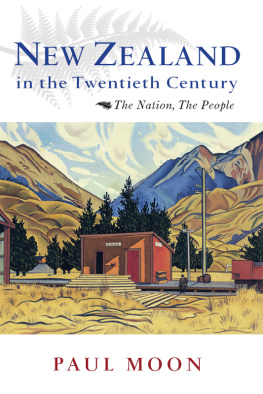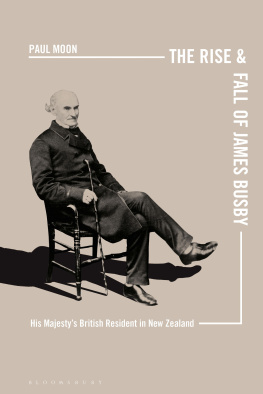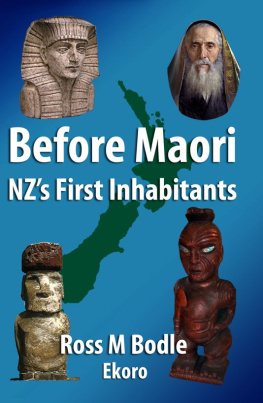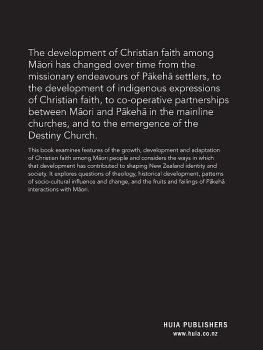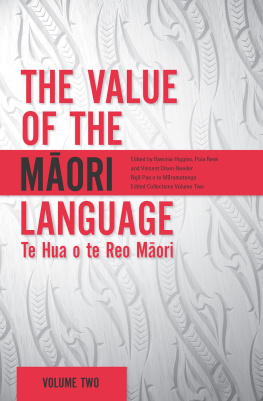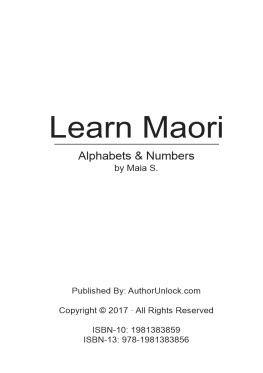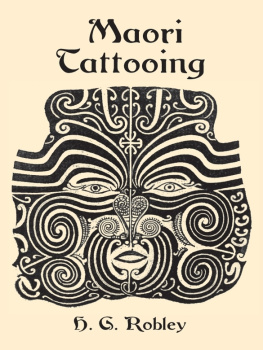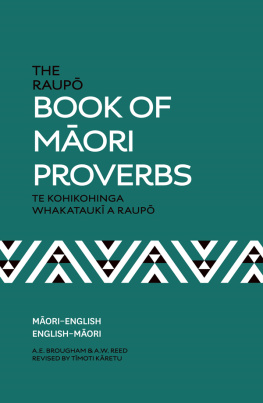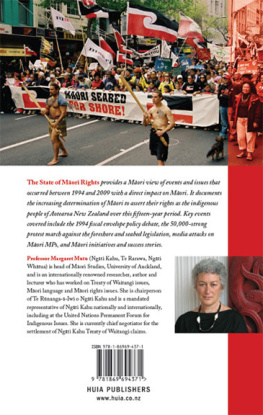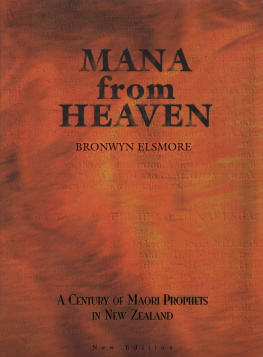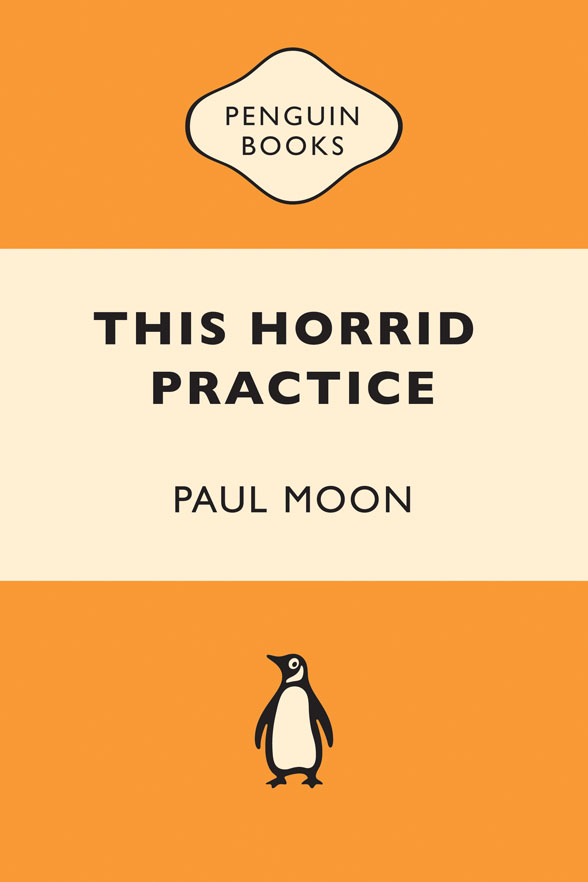This Horrid Practice
The Myth and Reality of Traditional Maori Cannibalism
Paul Moon
Contents
SECTION ONE:
Chapter 1:
Chapter 2:
Chapter 3:
Chapter 4:
Chapter 5:
SECTION TWO:
Chapter 6:
Chapter 7:
Chapter 8:
Chapter 9:
Chapter 10:
Chapter 11:
Chapter 12:
Chapter 13:
Chapter 14:
Chapter 15:
Chapter 16:
Chapter 17:
Chapter 18:
Chapter 19:
Chapter 20:
Chapter 21:
SECTION THREE:
Chapter 22:
Chapter 23:
Chapter 24:
Chapter 25:
Chapter 26:
Chapter 27:
Chapter 28:
Chapter 29:
Chapter 30:
SECTION FOUR:
Chapter 31:
Chapter 32:
Chapter 33:
Chapter 34:
Chapter 35:
Chapter 36:
Chapter 37:
Chapter 38:
SECTION FIVE:
Chapter 39:
Chapter 40:
Chapter 41:
Chapter 42:
Chapter 43:
Chapter 44:
Chapter 45:
Chapter 46:
CONCLUSION:
Though stronger evidence of this horrid practice prevailing among the inhabitants of this coast will scarcely be required, we have still stronger to give.
CAPTAIN JAMES COOK
INTRODUCTION
CANNIBALISM AS HISTORY
This book is a study of traditional Maori cannibalism, from its Polynesian origins through to its concluding phase in the early nineteenth century. Its primary purpose is to offer a comprehensive history of the practice where none before has existed, and in so doing to illustrate the ways in which various developments contributed to both the evolution and the eventual demise of cannibalism within Maori society. Inevitably, any undertaking of this nature is obliged also to draw on other fields of academic study, allowing the subject to be examined from different analytical perspectives. Disciplines such as anthropology, sociology, psychology and even theology, among others, are therefore employed when they can shed some light on aspects of the subject that a dependence on historical techniques alone might fail to illuminate to the fullest extent.
History, however, remains the primary method by which the various dimensions of the practice are examined in this work. Exploring Maori cannibalism from an historical position also enables some broader conclusions to be inferred particularly relating to areas such as the nature of pre-European Maori society, and MaoriEuropeans relations during the colonial period as well as helping to reconstruct an appreciation of the way cannibalism was seen and construed by contemporaries (both Maori and European) in the eighteenth and nineteenth centuries.
The initial European reaction to Maori cannibalism was hardly dispassionate. The practice was seen as something akin to a regressive moral trait in the body of Maori culture that was transmitted through the generations disfiguring the entire society, but thriving both in the indifference born of familiarity and in the reassuring cadences of tradition. This sort of quasi-scientific deduction typified what was believed at the time to be a more advanced or enlightened approach to cannibalism one in which the absolute tenets of science determined the corruption of the practice. Modern European knowledge, it seemed, was now amalgamating with ancient European morality in absolute opposition to humans eating other humans. From whichever angle it was viewed by Western observers in this period, the lesion of cannibalism in indigenous societies was intolerable, and had to be removed for the good of the patient.
It is hardly surprising, then, that with the arrival of Europeans in New Zealand from the end of the eighteenth century, concerted efforts were made to purge the practice from Maori society. This was achieved through a combination of European pressure (initially, often little more than overt expressions of repugnance) and corresponding Maori acquiescence. By the middle of the nineteenth century, the successful eradication of cannibalism had in the eyes of Europeans allowed Maori communities to advance with greater ease from their state of darkness into the radiance and blessings of civilisation. By virtue of being colonised, Maori were now next in line to receive the benefits that only the West could bring to them. The role of the European interloper in locations where cannibals lived was simply to hasten the inevitable transition of these barbarian cultures to a civilised future to give nature a bit of a hurry-along where possible.
The course of any investigation into Maori cannibalism also presents other sets of challenges for the researcher. One of these is the highly suggestive, even evocative nature of the term cannibalism. Do writers who deal with unusual or horrific subject matters, for example, run the risk of having their professional detachment and claims to impartiality weakened, either by overcompensating in their efforts to appear objective or by succumbing to their personal aversion to the practice they are investigating? To paraphrase Nietzsche, if historians fight with monsters, should they take care not to become monsters themselves, and if they gaze long enough into evil, does evil start to gaze back at them? This requirement obviously applies to most historical sources, but perhaps unexpectedly it has a bearing on some more recent academic enquiry as well.
DIVIDING LINES
Much of the current literature on cannibalism betrays traces of having come under the influence of ideas about cultural relativity, particularly those associated with postmodernism. This has offered some academics an alternative lens through which they can look at the world.
Postmodernism denies the possibility of any absolute truths, and assumes that everything is ultimately subjective. Nothing is deemed to be inherently right or wrong, or better or worse. Such terms supposedly belong to an earlier, judgemental and certainly less progressive age.
There are real dangers, however, in placing too much dependence on this paradigm. The position of an academic work in the development of a long stream of ideas or discoveries, or the extent of its intellectual rigour, can be too easily dismissed in favour of a blanket assertion that it is the product of a culturally bound environment. A handful of New Zealands early ethnographical writings, for example, have already been arbitrarily discarded in this manner by some researchers because of their alleged cultural impartiality.
The comparative dimension of postmodernism occurs frequently in academic literature on traditional cannibalism. However, it is a flawed method by which to examine and represent any culture: the same line of argument could just as easily be used to remove the stigma of bestiality, or paedophilia, or the Holocaust. Relativism must have its limits.
Although most historians who have addressed Maori cannibalism would not necessarily identify themselves as strict postmodernists, some of these ideas of cultural relativity have spilt over into their approaches to the topic. Keith Sinclair, for example, in his A History of New Zealand , presented the decline of cannibalism in the 1830s not as one of the major achievements of the missionaries, or as the end of a long epoch of atrocities in New Zealand, but merely as a part of an advancing colonialist offensive which led to the Maori world becoming disordered. Arenss refuge from evil was to deny its existence.
Another technique used by Arens and others is to hold up a mirror to writers on cannibalism and to deflect the moral indignation the subject instinctively provokes in people away from the cannibals themselves and on to those researching them. Thus, the Western world, according to Maggie Kilgour, has traditionally used claims of the existence of cannibalism for political purposes to demonise and attack forces seen as threatening social order, In cases such as these, over-dependence on theories of cultural relativism and postmodernism can act as serious obstacles when trying to determine the certainty of historical events. The pursuit of the theory begins to occur at the expense of history, not in support of it.


